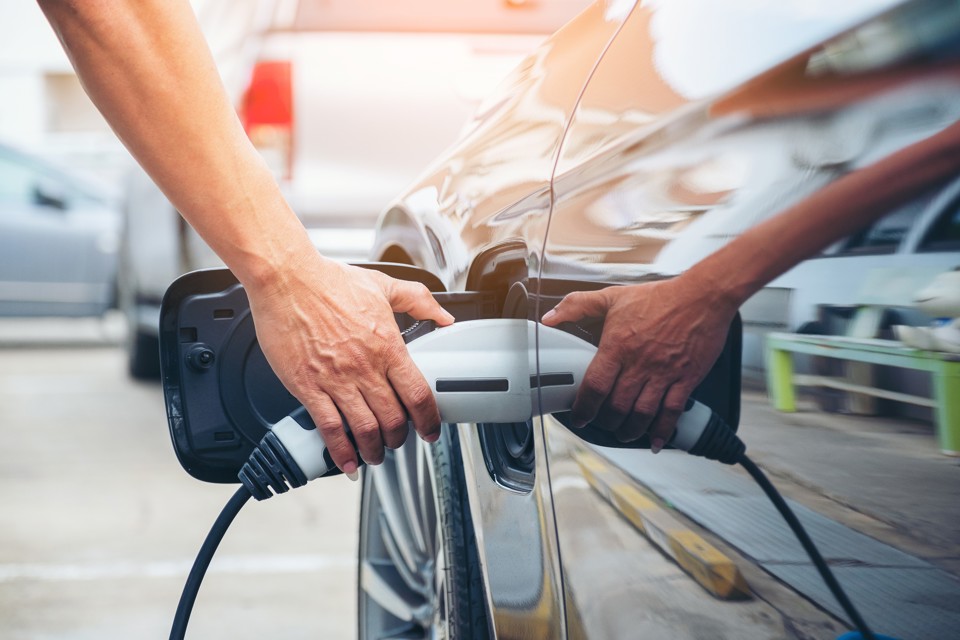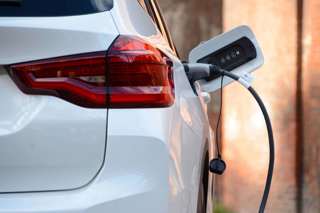Rising fuel prices have made almost half of car buyers more likely to switch to an electric vehicle (EV) for their next purchase.
A poll by The Motor Ombudsman revealed that 48% of UK car owners are concerned about having a petrol or diesel vehicle, in light of soaring fuel costs.
Fuel price data from the RAC shows the average cost of a litre of unleaded petrol stands at 185.04p, while diesel costs 190.92p per litre. It means the average family car now costs more than £100 to fill.
The Motor Ombudsman survey, of more than 2,000 UK car owners, revealed that individuals aged between 16 to 24 (64%), and those living in Greater London (65%) are among the most worried about petrol or diesel vehicles.
The study also found that, nationally, a similar proportion of male and female drivers (46% and 49% respectively) are apprehensive about owning a petrol or diesel vehicle at a time of soaring prices on the nation’s forecourts.
Electric vehicle (EV) leasing company, DriveElectric, predicts that registrations of new EVs will rise by over 74% in 2022.
Bill Fennell, chief ombudsman and managing director of the Motor Ombudsman, said: “With fuel costs at unprecedented levels, and the likelihood of further increases coming, as we approach the height of summer, it is clear from our survey findings that the prospect of electric vehicle ownership is becoming increasingly attractive.”
Of those who stated they were worried about owning a car running solely on conventional fuel, and favoured a move to plugging in when buying their next vehicle, a quarter of male drivers estimated that they would be purchasing an electric car within two to three months.
Generation Z - those individuals falling into the 16 to 24 category - also led the charge in terms of being the fastest to make the swap to electric out of any other age group, with 33% stating that a change could be on the cards within eight to twelve weeks.
When looking at the results from a nationwide perspective, the study found that the city of Leeds had the biggest proportion of people (27%) who wished to leave pure petrol or diesel power behind within a two-to-three-month period. Similarly, around a fifth of those living in London and Manchester said that they would consider getting behind the wheel of an electric vehicle within four to six months.
The Motor Ombudsman has launched a new online EV Resource Hub. Named “TMO EVolVE”, the portal, which can be accessed via the Electric Vehicles tab at the top of every page of The Motor Ombudsman’s website, has been designed to bring together the body’s EV-related content in one easy-to-navigate area.
As well as the latest EV news from The Motor Ombudsman, users of the Hub have direct access to the body’s dedicated Knowledge Base questions and answers on electric cars, in addition to case studies, webinar recordings, and infographics highlighting the principal sources of disputes brought to The Motor Ombudsman by consumers in relation to EV purchases and ownership.
Fennell added: “In light of the rising appetite for EVs, and a growing parc on UK roads, it was a logical decision to bring together our electric vehicle-related information and resources for consumers and businesses on to a standalone hub. TMO EVolVE has therefore been created to provide an easy-to-navigate user experience, offering the ability to view EV information from across our website in one single area, all at the click of a button.”
The Government has announced, today, that it is axing the plug-in car grant, which provided up to £1,500 off the price of a new EV.
There are also fears that EV uptake could be affected in the short term by social and economic challenges.


















Login to comment
Comments
No comments have been made yet.